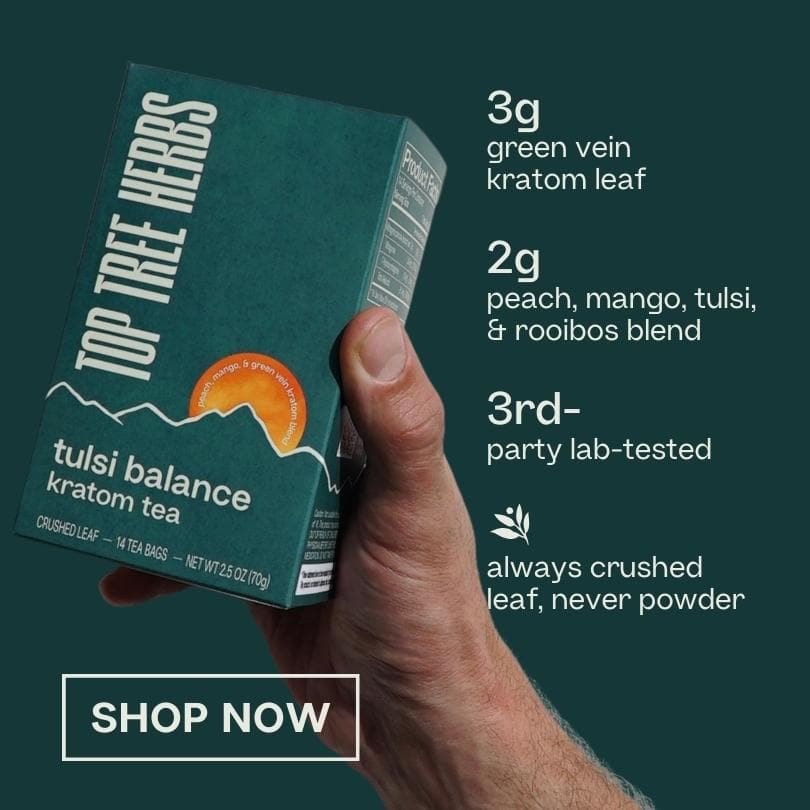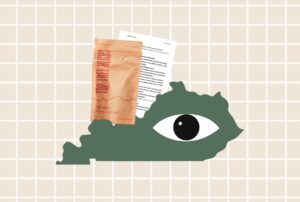Kratom Legality in Arkansas
Is kratom legal in Arkansas? Here at Top Tree, we often receive questions like this regarding state kratom laws and regulation. In response, we’ve dedicated a series of posts aimed towards answering your questions.
Arkansas is known for its natural beauty. In fact, Arkansas’ Diamond Crater Park is one of the few diamond-producing sites in the world where visitors are able to keep their valuable findings. With so much emphasis on natural beauty, let’s take a look at their stance on our favorite natural product; kratom.
Kratom laws are confusing in nature. Regulation of the kratom plant, Mitragyna speciosa, generally falls under the jurisdiction of a federal governing body like the FDA. In 2016, the FDA made a recommendation to the DEA to temporarily classify kratom as a Schedule I substance. The DEA submitted a notice of intent to make kratom federally illegal, but withdrew its notice soon after releasing it. While kratom remains legal at the federal level, some states have decided to impose their own restrictions on the Southeast Asian plant.
With the FDA’s constant pressure to outlaw the plant – and refusal to regulate it – what has become of kratom’s legal status in Arkansas?
As of winter 2022, the short answer to the question is kratom legal in Arkansas is unfortunately: it’s not. In October 2015, Arkansas banned the sale, purchase, and possession of kratom throughout “The Natural State.” Arkansas joins the likes of Alabama, Indiana, Rhode Island, Wisconsin, and Vermont as the only six states to impose a statewide kratom ban.
However, we believe this ban may be a bit misguided. Let’s get into the long answer to is kratom legal in Arkansas. First, we’ll take a look at Arkansas’ 2016 kratom ban in a bit more detail.

Arkansas Kratom Ban
As previously mentioned, Arkansas has prohibited kratom throughout the state.
The statewide ban was introduced in 2015. This ban prohibits over 3 million Arkansas residents from purchasing the traditional plant. It also constricts vendors’ freedom to sell kratom within the state. The price for an individual or corporate entity breaking this law is rather hefty.
The legal consequences depend on the amount of kratom possessed or sold. Violation of Arkansas’ 2015 kratom ban include:
- A class D felony for possession of less than 2 grams of kratom
- A class C felony for possession of 2 to 28 grams of kratom
- A class B felony – resulting in up to 20 years of jail time, or up to $15,000 in fines – for possessing over 28 grams of kratom
- An additional 10 year prison sentence if possession of any amount of kratom occurs within 1000 feet of facilities such as schools, parks, places of worship, campuses, bus stops, and day care centers
*You can find the full list of violations and penalties here.*
Why are there such harsh penalties for possession of a natural plant?
Kratom Scheduling in Arkansas
Well, these penalties stem from Arkansas’ decision – erroneous, in our opinion – to classify kratom as a Schedule I Substance.
As of February 1, 2016, Arkansas added kratom to their list of controlled substances as a Schedule I drug. Under the authority granted to the Arkansas Director of the Department of Health by law, Arkansas’ controlled substances act was amended to include kratom.
More specifically, the Schedule I Substances list was amended to include two of the alkaloids present in kratom: mitragynine and 7-hydroxymitragynine.
Seemingly, this decision was based upon the recommendation of a single physician. This physician was head of an addiction treatment facility in Springdale, Arkansas. The physician claimed that kratom exhibits, “opiate agonist action.” The claim ultimately led to the classification of kratom as an opium-derivative with the likes of heroin, morphine, and codeine.
False Premises
Let us explain why we believe this decision to be a wrongful classification.
For starters, kratom is not an opium derivative. Kratom comes from the dried leaves of the Southeast Asian Mitragyna speciosa plant, not the Lachryma papaveris opium plant. Mitragynine and 7-hydroxymitragynine, the banned “substances” in kratom, are in fact alkaloids. Alkaloids are organic compounds found in plants that have a psychological effect when consumed by humans (like caffeine in coffee). Mitragynine and 7-hydroxymitragynine are unique to the kratom plant. To call kratom an “opium derivative” is ignorance at best, and a shameless fabrication at worst.
Additionally, the claim that kratom and its alkaloids act as opioid agonists is categorically misleading. True, lab tests hint that kratom’s alkaloids may target opioid receptors (among others). However, if anything, kratom may be considered a partial opioid agonist. By definition, this means that a compound exhibits both agonist and antagonist properties. Furthermore, the findings of some initial lab reports on non-human animals point to mitragynine being less likely than traditional opioids to produce dangerous opioid side effects like respiratory depression. This research has not been done with humans, so it should not be extrapolated to people before clinical trials are done.
For these reasons (and many others), we believe kratom’s classification in Arkansas is unjust, and built upon false premises. Kratom has been brewed as a traditional tea for centuries without any mass harm to individual or societal health, and its portrayal as a dangerous opioid is unfounded.
Will Kratom Ever be Legal in Arkansas?
Kratom is currently prohibited throughout the state of Arkansas. However, this does not mean the ban has to be permanent.
Much like any policy here in the United States, laws are always subject to public scrutiny and change. As quickly as the kratom ban was enacted in Arkansas, it can also be nullified.
The best way to help overturn the ban in Arkansas is to show your support for the American Kratom Consumer Protection Act (KCPA). The American Kratom Consumer Protection Act is a basic regulatory framework for state regulation of kratom.
The American Kratom Association (AKA) is the main advocacy organization advocating for the adoption of the KCPA at the state level. The act accomplishes several important legal protections for kratom. Firstly, regulation of kratom ensures that there is oversight of the kratom industry. This ensures that vendors are following the rules and standards for lab testing kratom for potential contaminants and providing clear instructions for how their products should be used. Secondly, the KCPA protects kratom vendors and proponents from undue prosecution.
While there are no current KCPA bills introduced in Arkansas, this does not mean that Arkansas residents are helpless in the fight to make kratom legal in the United States. The word of the day: precedent!
At the time of this post, there are 6 states that have passed their own version of the American Kratom Consumer Protection Act. These states include:
- Arizona
- Georgia
- Nevada
- Oklahoma
- Oregon
- Utah
In addition, several other states have their own KCPAs well on their way to becoming law. (Check out our previous post Is Kratom Legal in Colorado? for example)
The best way to advocate for kratom’s legality in Arkansas is to support other states in their fight to pass pro-kratom legislation. Passing more state KCPAs establishes a precedent, a valid example or path for other states to follow.

Why Regulate Kratom in Arkansas?
If you’re sensing a theme in this series of posts, you’re probably onto something.
Regulation of kratom is ultimately the best way to protect the rights of vendors and kratom consumers alike. Accordingly, regulation of kratom ensures that kratom is safe and of proper quality. Typical AKCPAs include policy concerning:
- Testing for the concentration of alkaloids in kratom, ensuring a consistent product
- Testing for any harmful additives or contaminants
- Procedures for processing and storage by vendors to protect against mold and degradation
- Age restrictions for purchase of kratom products
- Packaging and display requirements for vendors, including ingredients and suggested serving sizes
While this is just a sample list of some of the areas of concern that typical kratom regulatory policies address, you can imagine the potential benefits of having such policies in place. They ensure that kratom is safer to consume, and prevent the misunderstandings that arise when kratom is adulterated or used in an uninformed manner.
Kratom was once a natural, traditional herb used by Southeast Asian laborers. They chewed kratom leaves or drank kratom tea as a midday pick-me-up to help ease the strain of a hard day’s work. We see enormous potential for kratom to benefit people throughout the United States in the same way it has for people in Southeast Asia. We want to reconnect with kratom’s roots, because Southeast Asian kratom use sets its own precedent for a healthy incorporation of kratom into daily routines.
Regulation is the best way to make that reconnection possible! We also think that drinking kratom as a tea can ease a lot of the issues found in the kratom powder market. Our independently lab-tested kratom tea bags are not just a product, but a representation of our commitment to kratom normalization, anti-prohibitionism, consumer safety, and science-based lawmaking.
Kratom Advocacy
How can you participate in preventing kratom suffering a similar fate in your state? Advocacy!
For all matters regarding kratom advocacy, we recommend that you become familiar with the American Kratom Association. They have worked tirelessly over the past decade to promote legislation that is based on research and experiential evidence from kratom consumers across the country.
In fact, the AKA was the main driving force behind shutting down the FDA and DEA’s proposed Schedule I classification of kratom in 2016. The scheduling effort was defeated due to the AKA’s advocacy and the testimonials from kratom proponents.
Final Word
While the current answer to is kratom legal in Arkansas? is no, that hopefully won’t be the answer forever. Kratom’s legal status in Arkansas is not a matter of scientific reasoning, but powerful cultural forces that influence legislation. Let’s do a quick review of what we learned:
- At the time of this post, kratom is currently banned throughout the state Arkansas
- Though there is growing interest in adopting an official regulatory policies throughout the state, no regulatory legislation has been passed
- Kratom regulation is extremely important to the kratom industry as a whole
- Regulatory policy can protect your right to enjoy the traditional Southeast Asian tea that we love to create for you!
Advocacy is the best way to protect kratom and its proponents, so we encourage you to get active! You can engage in whatever type of advocacy feels right for you. If you have any questions regarding advocacy, you can always contact us here or at [email protected]. We’ll do our best to answer your questions or point you in the right direction!
Thanks for sticking around for this week’s edition of the Better Brewing Blog, and as always…
Cheers to better brewing!





